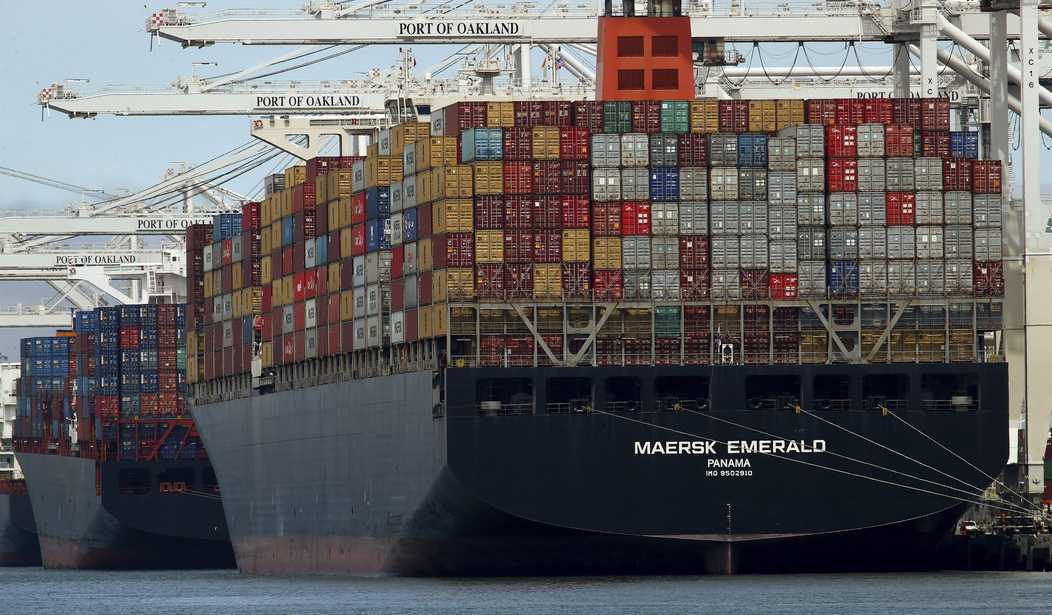Shipping giants Maersk and Hapag-Lloyd have suspended all traffic in the Red Sea following the latest round of Houthi attacks on commercial ships.
Maersk stated after the Maersk Gibraltar had a near-miss from a drone presumably launched by the Houthis. In a statement, Maersk said:
We are deeply concerned about the highly escalated security situation in the southern Red Sea and Gulf of Aden, The recent attacks on commercial vessels in the area are alarming and pose a significant threat to the safety and security of seafarers.
Ship owners avoid the Red Sea after attacks increase
— MarineTraffic (@MarineTraffic) December 15, 2023
Maersk Taikung has turned away from the Bab el Mandeb strait, after Maersk and Hapag-Lloyd announced they have halted journeys through the Red Sea after attacks on vessels escalated this week. pic.twitter.com/tvuL8PRe6R
Hapag-Lloyd followed suit when Hapag's Al Jasrah container ship was hit by an unknown object Friday. This strike resulted in a fire that was extinguished with minor damage.
USS Mason en route to assist Liberian flagged ship hit by Houthi missile in Bab Al Mandab Strait; fire onboard MV Palladium 3.
— Jennifer Griffin (@JenGriffinFNC) December 15, 2023
According to a senior U.S. defense official there have been 3 incidents in same vicinity of Bab Al Mandab strait near Yemen in past 24 hours.
Other than major shipping lines making an abrupt decision to sail around the Cape of Good Hope rather than use the Suez Canal, the only change was that many ships turned off their Automatic Identification System, making them more difficult to track.
Even though the Houthis claim they are targeting ships owned by Israeli interests or sailing for Israeli ports, that claim doesn't appear to match reality. The real objective appears to be a test run on shutting down two of the world's most critical maritime chokepoints. Without access to both ends of the Red Sea, a large portion of the world's shipping will be routed around South Africa, resulting in price increases and disrupted supply chains.

Credit: Port Economics, Management and Policy
The Houthis claim they intend to shut the Suez Canal down, too.
The Houthis are now spreading propaganda about:
— Visegrád 24 (@visegrad24) December 15, 2023
“stopping international maritime trade through the Suez Canal” pic.twitter.com/El1KSQ2srB
That this is happening under the nose of two US carrier strike groups is not a good look, but this is the price of Joe Biden kowtowing to Iran. We have within our power the ability to put this nonsense to a halt in short order, but we're not. The Congress should explore that reasoning, but it won't.
The US is trying to put together a "coalition" to guarantee free navigation in the Red Sea.
U.S. National Security Advisor Jake Sullivan told reporters last week that Washington was in talks with other countries over a maritime task force that would "ensure safe passage of ships in the Red Sea," but gave no further details.
Iran warned on Thursday that such a force would face "extraordinary problems".
U.S. Special Envoy for Yemen Tim Lenderking said the U.S. wanted the multi-national coalition to send "an important signal by the international community that Houthi threats to international shipping won't be tolerated."
And major shipping companies aren't terribly enthusiastic either. One can hardly blame them given our record for packing up and leaving once our flea-like attention span is taxed as we did in Iraq, Afghanistan, and many "conservatives" want to do in Ukraine.
I also think we shouldn't take a myopic view of this incident. While Iran is obviously giving the Houthis instructions, are they calling the shots, or are they the messenger boy?
During the August meeting of BRICS, the "emerging economies" group consisting of Brazil, Russia, India, China, and South Africa (I wasn't aware South Africa had an economy, much less an emerging one), invitations were given to several other nations.

Red is the original BRIC countries, green is the addition of South Africa making BRICA, and yellow is new invitees. Look at the maritime chokepoint map; there are some similarities. Note: Argentina has declined membership. If you look at what is happening in the Red Sea as a dry run for shutting down those checkpoints in case of war over Taiwan, it makes a lot of sense. If you recall, in 2021, the Suez Canal was blocked for six days and cost billions in losses when a container ship, the Ever Given, wedged itself into a critical point in the canal.
The Ever Given was owned by a Taiwanese company called the Evergreen Line. That Taiwanese company had extremely close ties to Communist China.
China controls one of the shipping alliances. The Ocean Alliance is dominated by Cosco Shipping, a Chinese state-owned company that is the world’s second-largest operator of ports—and is ultimately accountable to the Communist Party. The other members of the Ocean Alliance are Taiwan-based Evergreen Line and CMA CGM, a family-owned company based in Marseille, France, with deep ties to Chinese state-owned companies.
In a totally unconnected event, another Evergreen ship, the Ever Forward, ran aground just outside Baltimore Harbor in March 2022.
The US Navy exists to protect the United States and guarantee freedom of navigation in international waters. The first naval expedition of the US Navy was to eliminate the threat of the Barbary pirates to Christian shipping in the Mediterranean. The more reticent we are to do what is right, the more we encourage rogue actors and pirates. Chief among those geopolitical bad actors is China.
We will be damned lucky to avoid a war with China in the next few years, with 2027 being the most probable. We can be assured that every act the Houthi take is calibrated to test the actions of the US, NATO, and Western commercial interests. What we are teaching China is much more likely to encourage than discourage them.













Join the conversation as a VIP Member